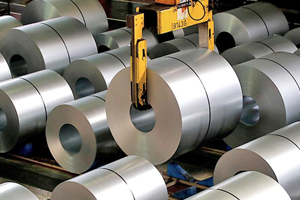Benefits and Applications of Aluminized Steel

Aluminized steel is a fascinating material that combines the strength of steel with the corrosion resistance of aluminum. It's a popular choice in various industries due to its unique properties. In this article, we'll explore the benefits and applications of aluminized steel, comparing it to other materials like stainless steel, and addressing concerns about its safety.
What is Aluminized Steel?
Aluminized steel is essentially steel coated with an aluminum-silicon alloy. This coating process gives the steel enhanced properties, making it more durable and resistant to corrosion. The aluminum coating forms a protective layer over the steel, which helps prevent rust and wear, even in harsh environments.
Types of Aluminized Steel
There are two main types of aluminized steel, each with distinct properties:
Type 1: This type features a coating made of aluminum and silicon. It's known for excellent corrosion resistance and is often used in applications where high temperatures are involved.
Type 2: This type is coated only with aluminum. It's primarily used for its corrosion resistance in environments where it won't be subjected to high temperatures.
Benefits of Aluminized Steel

Aluminized steel offers several advantages that make it a preferred choice in many applications:
Corrosion Resistance
One of the most significant benefits of aluminized steel is its resistance to corrosion. The aluminum coating acts as a barrier, protecting the steel from moisture and other corrosive elements. This makes aluminized steel ideal for use in outdoor environments or areas where exposure to moisture is a concern.
Heat Resistance
Aluminized steel can withstand high temperatures without losing its structural integrity. This makes it suitable for applications like automotive exhaust systems, industrial ovens, and heat exchangers.
Cost-Effectiveness
Compared to stainless steel, aluminized steel is often more affordable. It provides similar benefits in terms of corrosion and heat resistance but at a lower cost, making it an attractive option for budget-conscious projects.
Reflectivity
The aluminum coating on aluminized steel provides excellent reflectivity, which is beneficial in applications that require heat reflection, such as lighting fixtures and radiant barriers.
Applications of Aluminized Steel
Aluminized steel is used across various industries due to its versatile properties. Here are some common applications:
Automotive Industry
In the automotive sector, aluminized steel is widely used for exhaust systems and mufflers. Its ability to withstand high temperatures and resist corrosion makes it an ideal choice for these components, ensuring longevity and performance.
Construction
In construction, aluminized steel is often used for roofing and siding materials. Its corrosion resistance and cost-effectiveness make it a practical choice for buildings exposed to the elements.
Industrial Applications
Aluminized steel is also used in industrial settings, particularly in equipment subjected to high heat or corrosive environments. This includes applications like heat exchangers, ovens, and ventilation systems.
Cooking Equipment
Due to its heat resistance and non-toxic nature, aluminized steel is commonly used in manufacturing baking trays, ovens, and other cooking equipment. It's important to note that aluminized steel is safe for food-related applications.
Aluminized Steel vs. Stainless Steel

by Steve Pancrate (https://unsplash.com/@redaska)
When choosing between aluminized steel and stainless steel, it's essential to consider the specific requirements of your project. Here's a comparison of the two materials:
Corrosion Resistance
Both aluminized and stainless steel offer excellent corrosion resistance. However, aluminized steel is particularly effective in environments with high temperatures, while stainless steel is better suited for marine environments due to its superior resistance to saltwater.
Cost
Aluminized steel is generally more affordable than stainless steel. If budget constraints are a concern, aluminized steel may be the better choice without compromising on performance in certain applications.
Weight
Stainless steel tends to be heavier than aluminized steel. If weight is a critical factor, aluminized steel's lighter nature might be advantageous.
Appearance
While both materials have a shiny appearance, stainless steel is often preferred for its aesthetic appeal in architectural applications. If the appearance is a primary concern, stainless steel might be the better option.
Conclusion
Aluminized steel is a versatile and cost-effective material that offers numerous benefits, including corrosion resistance, heat resistance, and reflectivity. Its applications span various industries, from automotive to construction and cooking equipment. While it may not have the same aesthetic appeal as stainless steel, its performance and affordability make it a compelling option for many projects.
In summary, if you're looking for a material that combines strength, durability, and cost-effectiveness, aluminized steel is worth considering for your next project. Get a quotation through the email mesco@mescogroup.com.cn. A professional sales representative will contact you within 12 hours.

